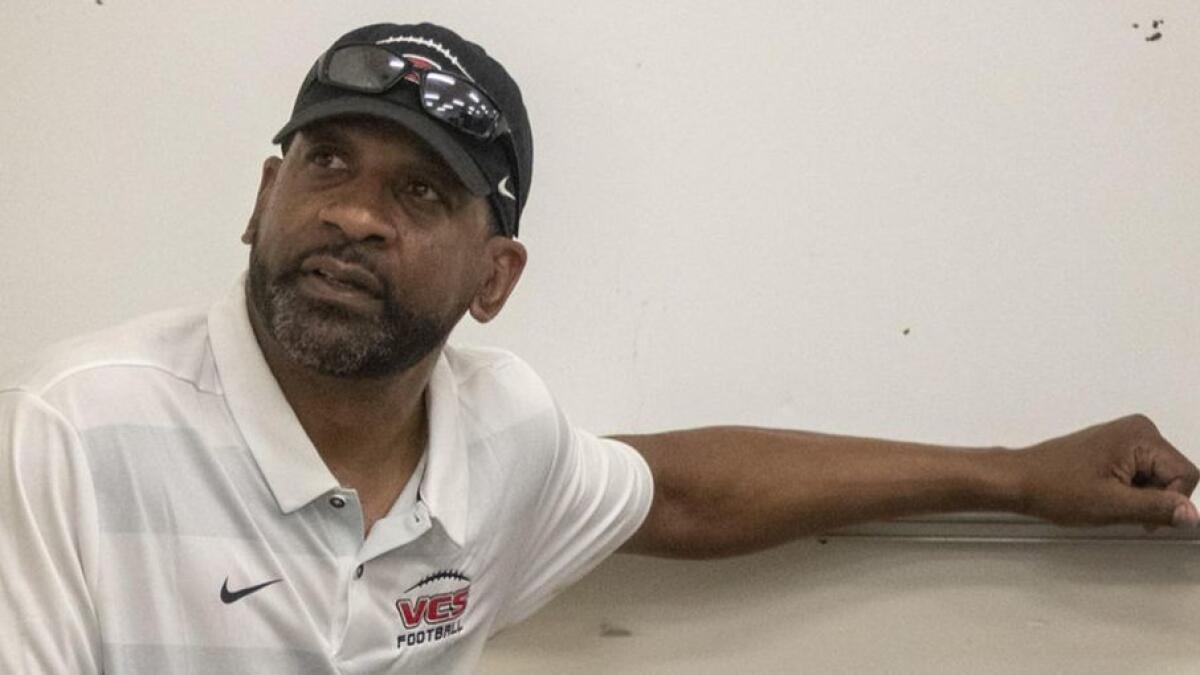Judge’s final decision confirms that NCAA penalty against Todd McNair violated California law

- Share via
One of the NCAA’s go-to sanctions is no longer legal in California.
Los Angeles County Superior Court Judge Frederick Shaller issued a final decision Tuesday finding the “show-cause” penalty the NCAA issued against former USC assistant football coach Todd McNair violated state law.
Shaller’s eight-page decision voided the show-cause provision of NCAA bylaws because it constituted an “unlawful restraint” on McNair’s pursuing a lawful profession.
“McNair’s ability to practice his profession as a college football coach has been restricted, if not preempted, not only in Los Angeles, but in every state in the country,” Shaller wrote.
The judge added that the decision would “allow NCAA and member schools to conform their conduct to the law and prevent future litigation.”
McNair sued the NCAA seven years ago in the aftermath of the extra-benefits scandal centered on former USC running back Reggie Bush. The NCAA said McNair had not been honest with investigators; USC didn’t renew his contract.
Though McNair lost a defamation trial against the NCAA earlier this year, Shaller entered a tentative ruling in August finding the penalty against McNair to be unlawful.
The show-cause provision, which can include a variety of penalties, barred McNair from recruiting at USC or any other school for one year. A school hiring the coach during the year would have to appear before a NCAA committee to “show cause” why the penalty shouldn’t apply there, too. Schools can face harsher sanctions if a coach under a show-cause penalty commits another violation.
Last month, the NCAA filed a declaration from Pac-12 Commissioner Larry Scott warning that the judge’s tentative decision, if made final, could threaten the NCAA membership of all four of the conference’s California schools.
“If California law prevents institutions in that state from honoring such commitments, it is hard to see how the Pac-12’s Member Universities in California could continue to meet the requirements of NCAA membership,” Scott wrote.
The NCAA also filed a declaration from Big West Commissioner Dennis Farrell expressing concern that conference schools could no longer rely on the NCAA’s disciplinary mechanisms if the show-cause penalty wasn’t legal.
Shaller dismissed those concerns in a separate filing Tuesday.
“The opinions of these two witnesses are completely speculative and irrelevant to the issue …” Shaller wrote. “The proposed testimony of Scott and Farrell is deemed inadmissible and is not considered.”
Shaller added: “Defendant has not presented a good reason for reopening the case that would further the interests of justice as the transcript of the proceedings amply supports the issues before the court and there is no showing in the objections to the proposed statement of decision of any fact that would affect the court’s decision.”
In a statement, the NCAA said: “The NCAA disagrees with the court’s ruling, which is wrong as a matter of law and does not impact Todd McNair’s show-cause order that expired more than six years ago. We will explore all avenues for relief to ensure that NCAA member schools in California can continue to abide by the same rules as the rest of the NCAA’s membership.”
McNair’s attorneys and the Pac-12 declined to comment.
Twitter: @nathanfenno
More to Read
Go beyond the scoreboard
Get the latest on L.A.'s teams in the daily Sports Report newsletter.
You may occasionally receive promotional content from the Los Angeles Times.











